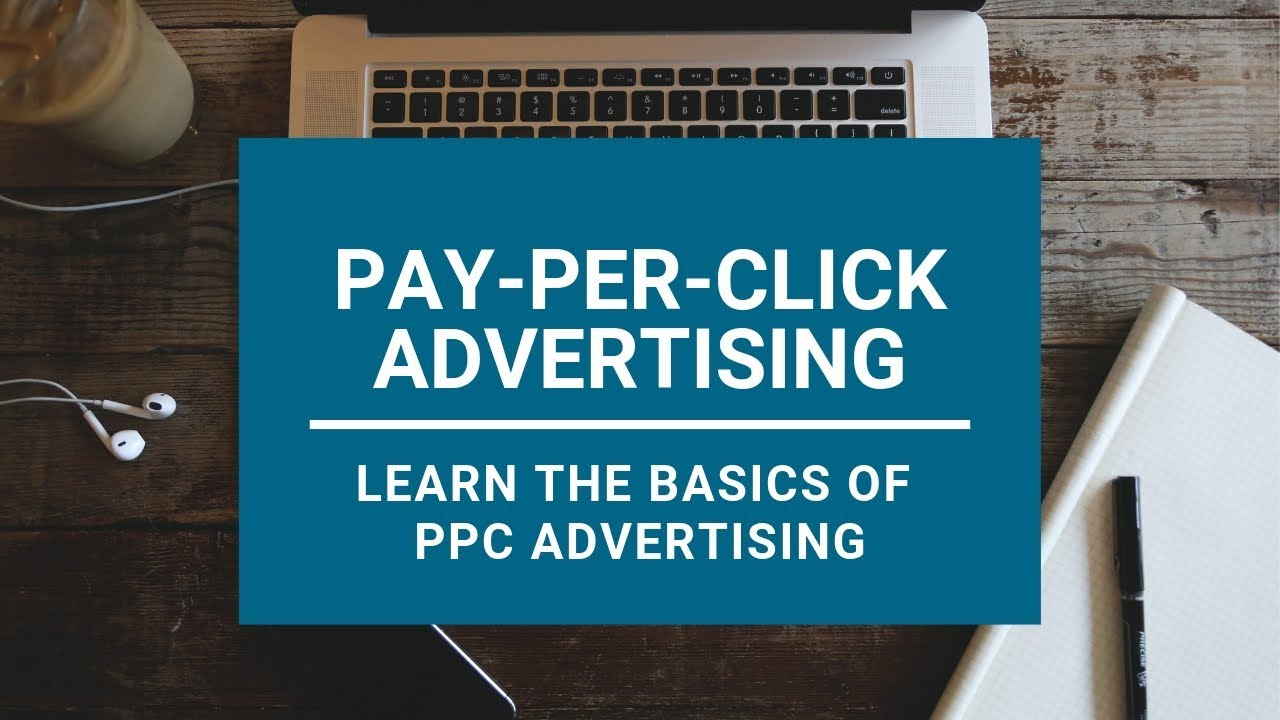- google ads pay per click
- Smart Bidding With AI For Relevant Searches And Budget Management
- Deciding On Budget And Bidding Options
- Calculating Average Daily And Monthly Budgets
- Influencing Traffic And ROI With Maximum Cost-Per-Click Bid
- Recommended Daily Budget For Beginners: $10 To $50
- Allocating Budget Across Multiple Campaigns Using Shared Budgets
- Optimizing Performance With Shared Budgets (Not Compatible With Campaign Groups/Experiments)
- Overdelivery: When Campaigns Spend More Than The Daily Budget
In the rapidly evolving world of online advertising, one strategy has been making waves and driving businesses towards success: GoogleAdsPay Per Click (PPC). This powerful advertising tool allows businesses to get their brand in front of the right audience at the right time.
But how can you ensure that your PPC campaigns are truly effective? Enter the world of keywords and AI-powered Smart Bidding.
By carefully choosing the right keywords and harnessing the power of artificial intelligence, you can catapult your campaigns to new heights. And that’s not all – in 2024, a new user experience will revolutionize the way you approach budget allocation and bidding options.
Get ready to uncover the secrets to GoogleAds PPC success!
| Item | Details |
|---|---|
| Topic | Discover the Secrets of Google Ads Pay Per Click for Maximum ROI |
| Category | Ads |
| Key takeaway | In the rapidly evolving world of online advertising, one strategy has been making waves and driving businesses towards success: Google Ads Pay Per Click (PPC). |
| Last updated | December 27, 2025 |
google-ads-pay-per-click">google ads pay per click
Google Ads Pay Per Click (PPC) is an advertising model where advertisers pay a fee each time their ads are clicked on in Google’s search engine or on partner websites. This approach allows businesses to strategically target relevant keywords that align with their products or services.
Smart Bidding with AI can help optimize PPC campaigns by analyzing data and making real-time adjustments to reach the most relevant searches while also effectively managing the budget. When implementing PPC campaigns, it is important to determine the budget and bidding options.
This includes calculating average daily and monthly budgets, as well as setting maximum cost-per-click bids, which can influence the amount of traffic and return on investment (ROI). For beginners, it is recommended to start with an average daily budget of $10 to $50.
Additionally, shared budgets can be used to allocate budget across multiple campaigns, optimizing performance. However, it’s important to note that shared budgets do not work with campaign groups or experiments.
It’s essential to monitor campaign performance and adjust the budget accordingly. Google Ads operates through an ad auction, which considers both the quality of the ads and the bid amount to determine ad positions.
It’s worth mentioning that the actual cost per click (CPC) is often less than the maximum bid. There are two cost-per-click bid strategies available: Maximize Clicks and Manual CPC bidding.
With Manual CPC bidding, advertisers have manual control over maximum CPC bids. To inform bidding and budget decisions, Google provides the Keyword Planner, which offers traffic estimates.
Bid adjustments for mobile devices, locations, and specific days/times can further optimize PPC campaigns. It’s noteworthy that in 2024, Google Ads will introduce a new user experience that includes instructions for advertisers.
Key Points:
- Google Ads Pay Per Click (PPC) is an advertising model where advertisers pay a fee each time their ads are clicked on in Google’s search engine or on partner websites.
- Smart Bidding with AI can help optimize PPC campaigns by analyzing data and making real-time adjustments to reach the most relevant searches while also effectively managing the budget.
- Determining the budget and bidding options is important when implementing PPC campaigns, including calculating average daily and monthly budgets and setting maximum cost-per-click bids.
- It is recommended for beginners to start with an average daily budget of $10 to $50.
- Shared budgets can be used to allocate budget across multiple campaigns, optimizing performance, but they do not work with campaign groups or experiments.
- Monitoring campaign performance and adjusting the budget accordingly is essential.
- The actual cost per click (CPC) is often less than the maximum bid.
- There are two cost-per-click bid strategies available: Maximize Clicks and Manual CPC bidding.
Sources
https://ads.google.com/intl/en_us/home/campaigns/search-ads/
https://support.google.com/google-ads/answer/2375454?hl=en
https://support.google.com/google-ads/answer/116495?hl=en
https://support.google.com/google-ads/answer/2471184?hl=en
Check this out:
💡 Pro Tips:
1. Utilize the Keyword Planner tool to research and choose high-performing keywords that align with your campaign goals.
2. Experiment with different bidding options, such as Maximize Clicks and Manual CPC bidding, to find the strategy that works best for your campaign.
3. Take advantage of bid adjustments for mobile devices, locations, and specific days/times to optimize your ad performance.
4. Keep track of your campaign’s daily and monthly budget to ensure you are staying within your allocated budget and achieving your desired ROI.
5. Stay up to date with any new features or changes in the Google Ads platform, as instructions are part of a new user experience launching in 2024, and these updates may affect your campaigns.
Smart Bidding With AI For Relevant Searches And Budget Management
In today’s digital age, online advertising has become an integral part of any marketing strategy. One of the most effective methods of online advertising is Google Ads Pay Per Click (PPC).
With the ever-increasing competition online, it is crucial to choose the right keywords to ensure the success of your Google Ads PPC campaigns.
Google Ads provides an incredible feature called Smart Bidding with Artificial Intelligence (AI). This revolutionary technology analyzes user behavior, historical data, and other relevant factors to help you reach the most relevant searches and effectively manage your budget.
By leveraging the power of AI, Smart Bidding ensures that your ads are shown to users who are most likely to be interested in your product or service, resulting in higher conversion rates and maximum Return on Investment (ROI).
Deciding On Budget And Bidding Options
Before launching your Google Ads PPC campaign, it is essential to determine your budget and bidding options. Your budget sets the limit for how much you are willing to spend on advertising per day, week, or month.
This budget will directly impact the reach and frequency of your ads. Similarly, bidding options allow you to choose how much you are willing to pay for each click on your ad.
Calculating Average Daily And Monthly Budgets
Calculating your average daily and monthly budgets is an important step in setting up your Google Ads PPC campaign. To calculate your average daily budget, simply divide your monthly budget by the number of days in a month.
This will help you allocate your budget effectively and ensure that you don’t overspend or underspend. It is crucial to monitor and adjust your budget regularly based on the performance of your ads.
Influencing Traffic And ROI With Maximum Cost-Per-Click Bid
The maximum cost-per-click (CPC) bid plays a crucial role in determining the amount of traffic your ads receive and ultimately impacts your ROI. The maximum CPC bid refers to the maximum amount you are willing to pay for a click on your ad.
Higher bids typically result in more ad impressions and clicks, but they can also lead to higher costs. It is essential to find the right balance between bid amount and desired ROI to optimize your campaign’s performance.
Recommended Daily Budget For Beginners: $10 To $50
For beginners in the world of Google Ads PPC, it is advisable to start with a modest daily budget ranging between $10 to $50. This budget allows newcomers to get a feel for the platform without risking significant financial resources.
Starting with a lower budget also provides the opportunity to learn and optimize your campaign before scaling up your budget and reaching a wider audience.
Allocating Budget Across Multiple Campaigns Using Shared Budgets
As your advertising efforts grow, you may find it beneficial to allocate your budget across multiple campaigns. Shared budgets are a useful tool provided by Google Ads that allow you to distribute your budget across several campaigns.
This optimization technique ensures that your overall budget is used efficiently and effectively.
Optimizing Performance With Shared Budgets (Not Compatible With Campaign Groups/Experiments)
Using shared budgets can greatly enhance the performance of your Google Ads PPC campaigns. However, it is important to note that shared budgets are not compatible with campaign groups and experiments.
Therefore, if you have campaigns organized into groups or are running experiments, shared budgets may not be the best option for you. It is crucial to analyze your campaign structure and needs before deciding to implement shared budgets.
Overdelivery: When Campaigns Spend More Than The Daily Budget
Overdelivery occurs when your Google Ads campaign spends more than its daily budget. This can happen due to various factors, such as high competition or sudden spikes in user activity.
Google Ads will automatically adjust for overdelivery but may exceed your budget temporarily. It is essential to monitor your campaign closely and make necessary adjustments if overdelivery becomes a persistent issue.
In conclusion, choosing the right keywords, utilizing Smart Bidding with AI, and effectively managing your budget are vital components of a successful Google Ads PPC campaign. By optimizing your budget and bidding options, you can maximize your campaign’s reach and ROI.
It is important to stay updated on the latest features and changes within Google Ads to continually improve your advertising efforts. With the secrets of Google Ads Pay Per Click at your disposal, you are well-equipped to achieve maximum ROI and propel your business towards success.











